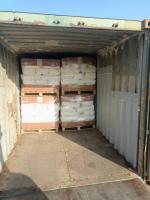what is the main application of nonionic polyacrylamide in water treatment and mining
Nonionic polyacrylamide (NPAM) is a type of polymer that is widely used in a variety of industrial and environmental applications due to its unique properties. NPAM is a water-soluble polymer that can be easily synthesized and modified to suit different applications. Its main application is in the treatment of water and wastewater, where it is used as a flocculant and coagulant aid to remove suspended particles and impurities from the water.
The main application of NPAM is in the treatment of wastewater, where it is used as a flocculant and coagulant aid. NPAM is particularly effective in treating wastewater that contains suspended solids, such as organic matter, bacteria, and algae. When added to the wastewater, NPAM molecules interact with the suspended particles, causing them to clump together and form larger, heavier particles that can be easily removed from the water through sedimentation or filtration.
In addition to its use in wastewater treatment, NPAM has a wide range of other applications in various industries. For example, it is used in the oil and gas industry as a drilling fluid additive to improve drilling efficiency and reduce environmental impact. NPAM is also used in the papermaking industry as a retention aid to improve paper quality and reduce water consumption.
Another application of NPAM is in soil stabilization and erosion control. NPAM can be added to soil to improve its structure and stability, preventing erosion and soil loss. This is particularly important in areas with steep slopes or where vegetation has been removed, as soil erosion can lead to a range of environmental problems, including landslides, sedimentation of rivers and lakes, and loss of habitat.
NPAM is also used in the mining industry as a flocculant and coagulant aid to remove impurities and suspended solids from water used in mining operations. This is important for preventing environmental damage and improving the efficiency of the mining process.
In the agriculture industry, NPAM is used as a soil conditioner to improve soil structure and increase water retention. This can help to improve crop yields and reduce water consumption. NPAM can also be used as a seed coating to improve germination and seedling growth.
In the food industry, NPAM is used as a thickener and stabilizer in a range of products, including dairy products, sauces, and dressings. It is also used in the production of beer and wine to clarify the liquid and remove impurities.
Another application of NPAM is in the cosmetics and personal care industry, where it is used as a thickener and emulsifier in creams, lotions, and shampoos. It is also used in toothpaste and mouthwash as a binder and emulsifier.
In conclusion, the main application of nonionic polyacrylamide is in the treatment of water and wastewater, where it is used as a flocculant and coagulant aid to remove suspended particles and impurities from the water. However, it has a wide range of other applications in various industries, including oil and gas, papermaking, soil stabilization, mining, agriculture, food, cosmetics, and personal care. NPAM is a versatile polymer that offers many benefits for industrial and environmental applications, and its use is expected to continue to grow in the future.

